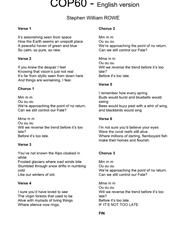2021 was a landmark year for climate action with the United Nation’s COP26 climate conference being held in Glasgow. Since then, the world has picked up its pace in the race to tackle climate change and finding sustainable solutions, presents some of the most difficult and important engineering challenges of our time.
We all need to play our part and even at the IET, we are still learning about how we can become more sustainable and finding innovative ways to provide solutions.
We'd love to hear your thoughts on how we, the IET or the engineering profession at large can become more sustainable. Please share them in this thread.

